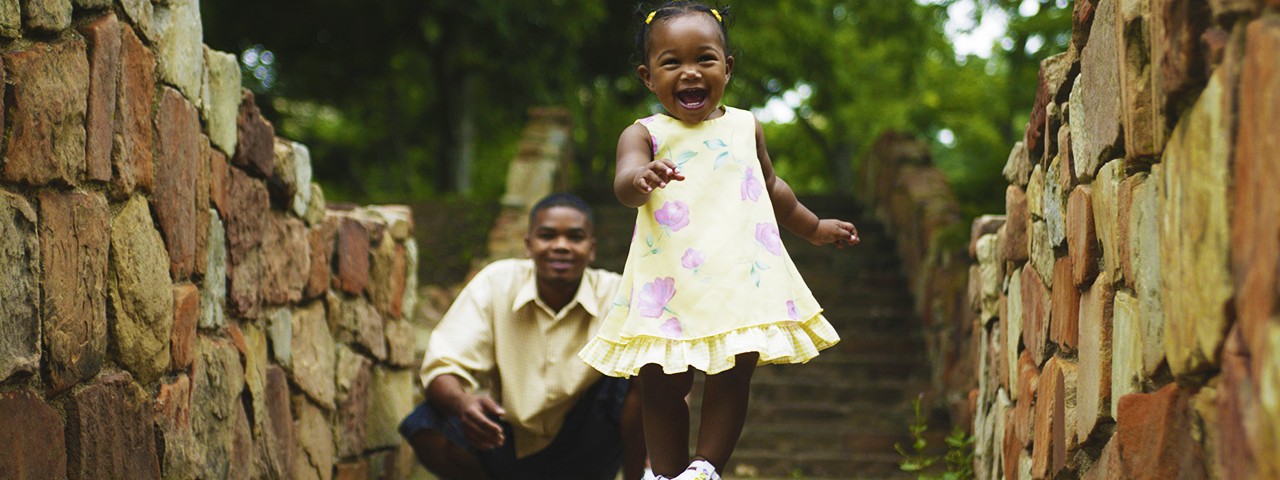Self-Confidence Starts Early
- Tweet

Self-confidence, or self-esteem, is founded upon an individual’s perceptions — of his abilities, his social competence, his physical appearance, and other qualities.
It’s a person’s evaluation of his self-worth. Children with high self-confidence feel themselves to be competent and capable. Children who lack self-confidence feel that they don’t measure up, and this belief can eventually lead them to avoid challenges and new experiences.
Self-esteem contributes to well-being by improving coping skills and providing a buffer against negative events and influences. Childhood self-esteem has been linked to educational attainment and emotional health in adulthood.
Self-confidence is grounded in early experiences.
A child’s first social interactions with peers appear to be related to later self-confidence. In one study, high inhibition and low social competence in preschool predicted low self-esteem up to age 10.
One likely explanation is that a child who experiences early and consistent social difficulties develops the expectation that he will be ignored or rejected by his peers, and that these expectations create low self-esteem.
In some cases, self-confidence seems to be rooted in an infant’s innate temperament. From birth, some babies are easily distressed or more fearful than average. Parents may find such an infant difficult to sooth or comfort. Often, they respond by becoming overprotective or controlling, believing that these strategies will be beneficial for their vulnerable child.
In reality, they may have the opposite effect: over time, this kind of parenting can mean fewer opportunities for a baby to play and explore. As a result, he is likely to remain inhibited and withdrawn and to miss out on important social skills. Too often, this pathway leads to low self-confidence.
Lack of confidence can become a self-reinforcing cycle.
Once in place, low self-confidence becomes deep-rooted and hard to overcome. The behavior of a child with low self-esteem can set up a sequence of events that reinforce his negative beliefs about himself.
For example, feelings of social inadequacy can discourage a child from attempting to join in activities with other children. This shyness, in turn, makes him a less desirable playmate, leading to indifference or rejection by his peers. Their rejection then contributes further to his low self-esteem.
Can we help children avoid the cycle of low self-confidence?
Can we help children avoid the cycle of low #SelfConfidence?Tweet this!What can parents and communities do to enhance children’s self-confidence and later outcomes?
One promising strategy for communities is to ensure that high-quality child care is accessible to all families who need it. Affordable, quality care can provide children with stable early peer experiences in a safe and supportive environment.
These early positive interactions promote the development of self-esteem and social skills. Research provides evidence for the effect of high-quality child care in infancy on self-confidence and social adjustment in preschool and throughout the elementary school years.
Parents of infants or young children who appear shy or withdrawn can create opportunities for their children to improve their social adjustment. Play dates with a small group of peers can provide low-pressure, manageable settings that give children the opportunity to develop social skills at their own pace.
References:- Field T. Quality infant day-care and grade school behavior and performance. Child Development. 1991; 62(4): 863-70.
- Mann M, et al. Self-esteem in a broad-spectrum approach for mental health promotion. Health Education Research. 2004;19(4):357-72.
- Rubin KH, et al. Social Withdrawal in Childhood. Annual Review of Psychology. 2009 ; 60: 141–171.
- Verschueren K, et al. The internal working model of the self, attachment, and competence in five-year-olds. Child Development. 1996; 67(5):2493-511.
